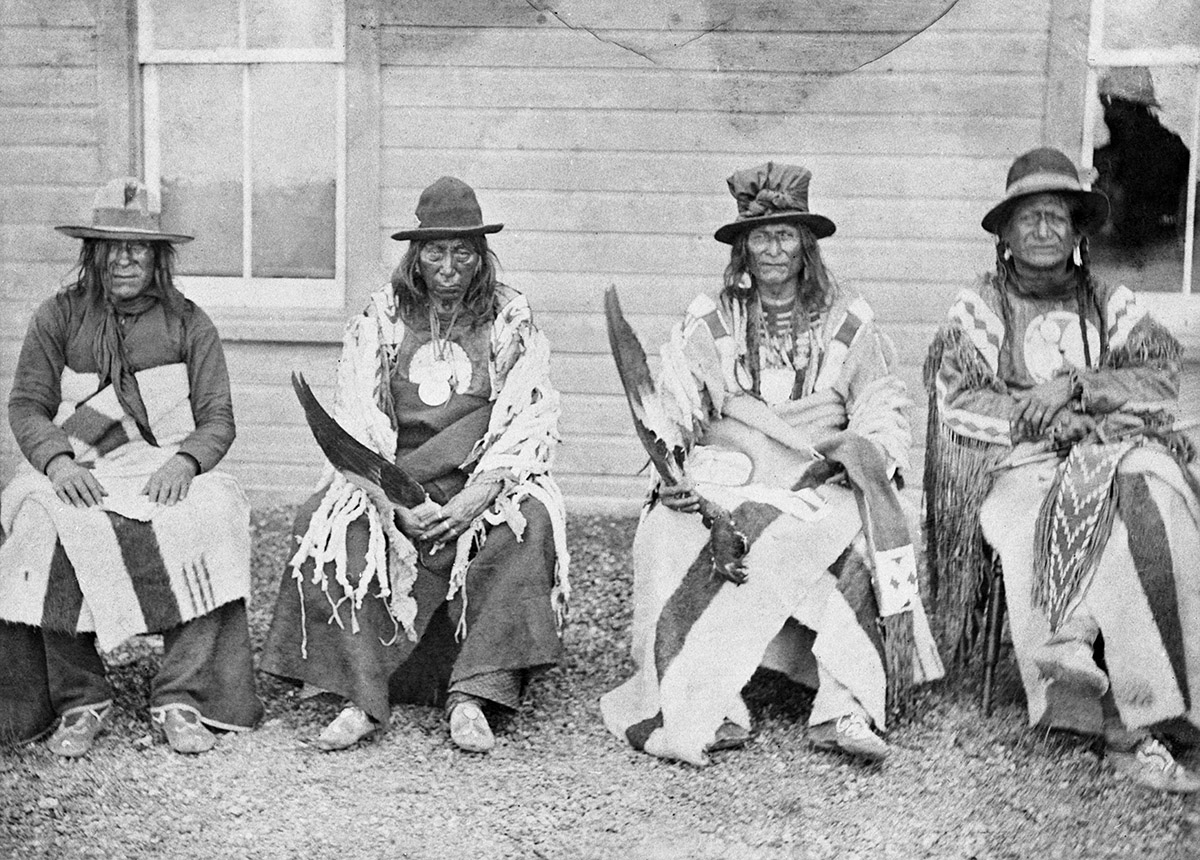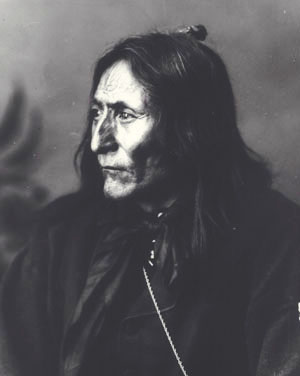
By Jim Thunder, originally published in Windspeaker in 1987
First Nations chiefs who negotiated with the government before the signing of the treaties were very wise leaders. These leaders were sincere in their requests and were concerned not only with themselves and the present but also with the future and what it held for their descendants.
The following story shows the wisdom and sincerity of one such leader. His name was Crowfoot (Isapo-muxika), chief with the Blackfoot Confederacy.

The story took place during the negotiations preceding Treaty 7 when Chief Crowfoot met with a government spokesman.
The government spokesman spread some dollar bills on the ground and said, "This is what the white man trades with. This is his buffalo robe. Just as you trade with skins, we trade with these pieces of paper."
Chief Crowfoot took a handful of clay and made a ball out of it and put it on the fire. It baked, but it did not crack. He turned to the government representative and said, "Now put your money on the fire and see if it will last as long as the clay."
The government spokesman was embarrassed and quickly replied, "No, I cannot do that because my money will burn."
With a gleam in his piercing grey eyes, Chief Crowfoot said, "Your money is not as good as our land is it? The wind will blow it away, fire will burn it and water will rot it, but nothing can destroy our land. You don't make a very good trade."
The chief then picked up a handful of sand from the riverbank. He poured the sand into the palm of the government spokesman's hand and said, "You count the grains of sand in that while I count the money you have offered to me."
The government representative looked at the handful of sand and quietly replied, "I might not live long enough to count the grains in this sand." Obviously, the money could be counted in a few minutes.
The wise old chief spoke, "Our land is more valuable than your money. It will last forever. It will not perish as long as the sun shines and the rivers flow and, through all of the years, it will give life to men and beasts.
"We cannot sell the lives of men and animals, and so we cannot sell the land. It was put here by the Great Spirit and we cannot sell it because it does not really belong to us.
"You can count your money and burn it with the nod of a buffalo's head, but only the Great Spirit can count the grains of sand and the blades of grass on these plains. As a present to you, we will give you anything we have that you can take with you. The land we cannot give."
This short account of Crowfoot and the government representative demonstrates the quality of First Nations leadership. It shows that our forefathers had insight and recognized the value of lands.
This demonstrates the government's inability to comprehend the depth of knowledge and wisdom that Indigenous leaders had during treaty negotiations.
EDITOR'S NOTE: A source used for this article was the Saskatchewan Indian Magazine.
On this page you can watch a video of Piikani Elder, Wilfred Yellow Wings, relate a short oral history account of the negotiation of Treaty 7. https://www.historymuseum.ca/history-hall/negotiating-treaty-7/
Top photo caption: Third from the left is Crowfoot (Siksiká). He is photographed with three others from the Niisitapiikwan (Blackfoot Confederacy), signatories of Treaty 7. Three Bulls (Siksiká), Sitting Behind Eagle Tail (Piikani) and Red Crow (Kainai). Photographer unknown, 1884 Glenbow Museum, NA-4035-159.
